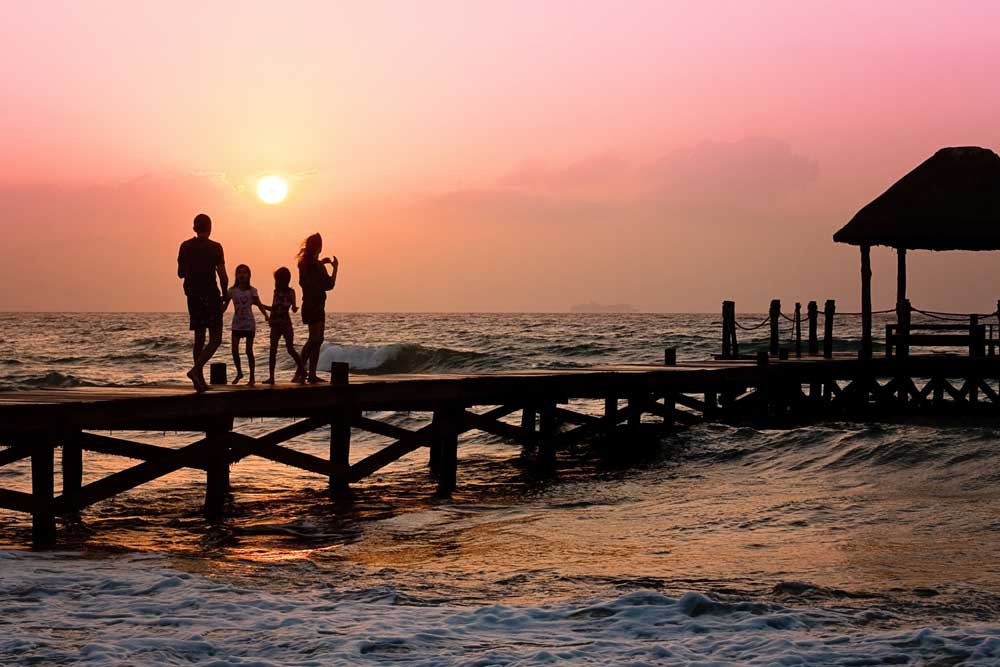
Heading to the beach this summer? You’re probably already mentally packing up a car full of towels, sunscreen, swimsuits, and beach toys. And a cooler, of course. Snacks are essential!
While you’re hitting the waves, building sandcastles, and trying to dig your wallet out of your child’s newly constructed moat, you can also sneak in some great lessons about being a total mensch (a good person). The beach offers wonderful ways to teach and practice Jewish concepts, like returning lost objects, being kind to animals, and repairing the world. And the best part? Doing some good on vacation doesn’t require any extra packing. As a wise rabbi once said: “Leave your valuables at home, not your values.”
Caring For The Environment
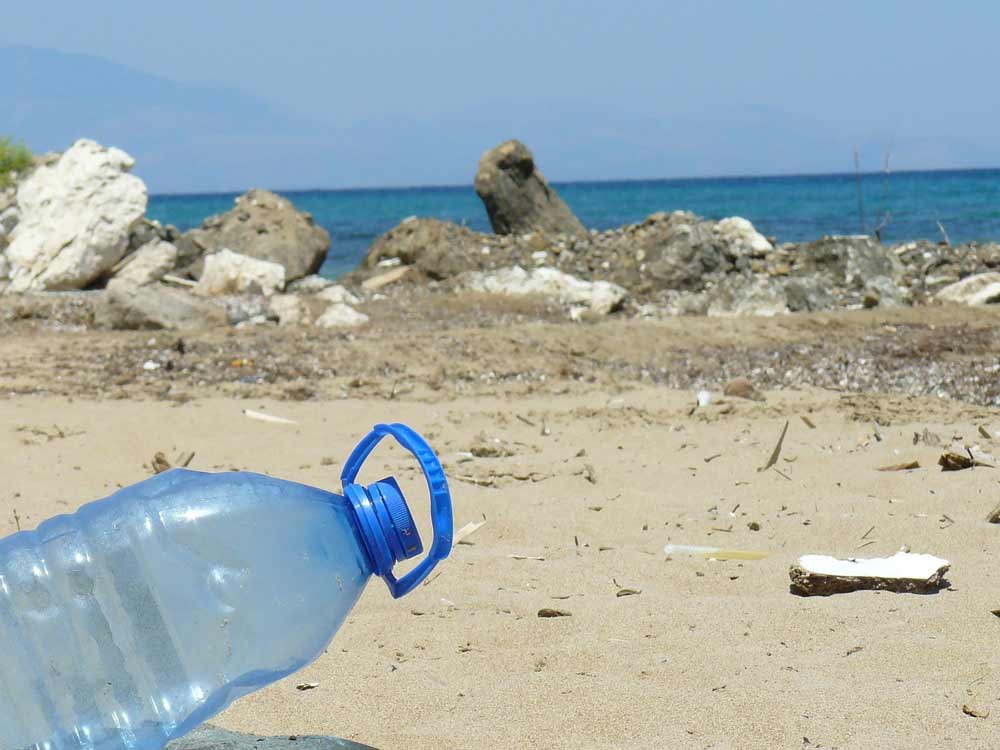
A visit to the beach is a great way to view firsthand the power of nature, from the hot sand, to the constant movement of the tide, to the rush of the waves. But it’s also an opportunity to see how vulnerable the environment is, from garbage on the sand, to erosion of the shore, to pollution in the water. The Jewish concept of bal tashchit is a reminder not to destroy needlessly, and it can be applied to outdoor activities as well as recycling and composting.
Before your beach vacation, take time to plan how your family will practice caring for the environment, including using a mineral sunscreen, which, according to studies, is better for coral reefs. Enlist the kids to help pack a low-waste or no-waste lunch for the trip with aluminum or silicone straws and cloth napkins. You can even upcycle old food containers to make reusable snack packs.
And before you shake off the sand and pile back into the car, remember to leave nothing behind.
Returning Lost Objects
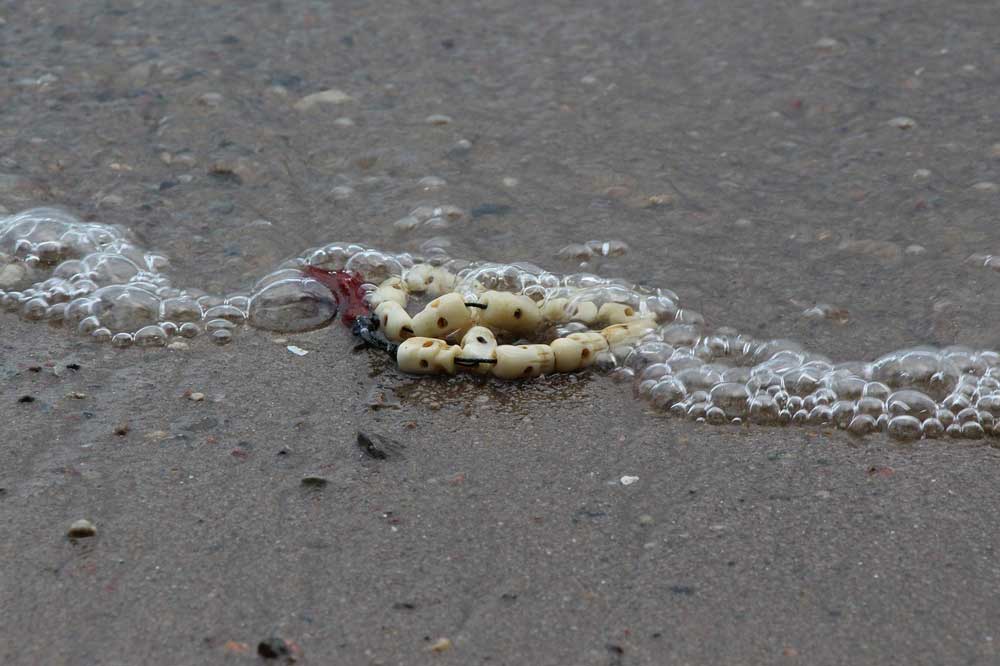
If there’s one thing kids can relate to, it’s losing something. Kids also understand the joy of finding something new, because when you’re little, even the smallest found treasure is precious.
Between the sand, the water, and the trips to the car, plenty of items get lost at the beach. The temptation to pocket lost items is actually the perfect excuse to teach children about the Jewish commandment to return lost items, called hashavat aveidah in Hebrew. While it may be difficult to explain the moral necessity of returning lost items, children can begin to grasp the emotions attached to losing something and develop empathy for those in need.
Cooperation
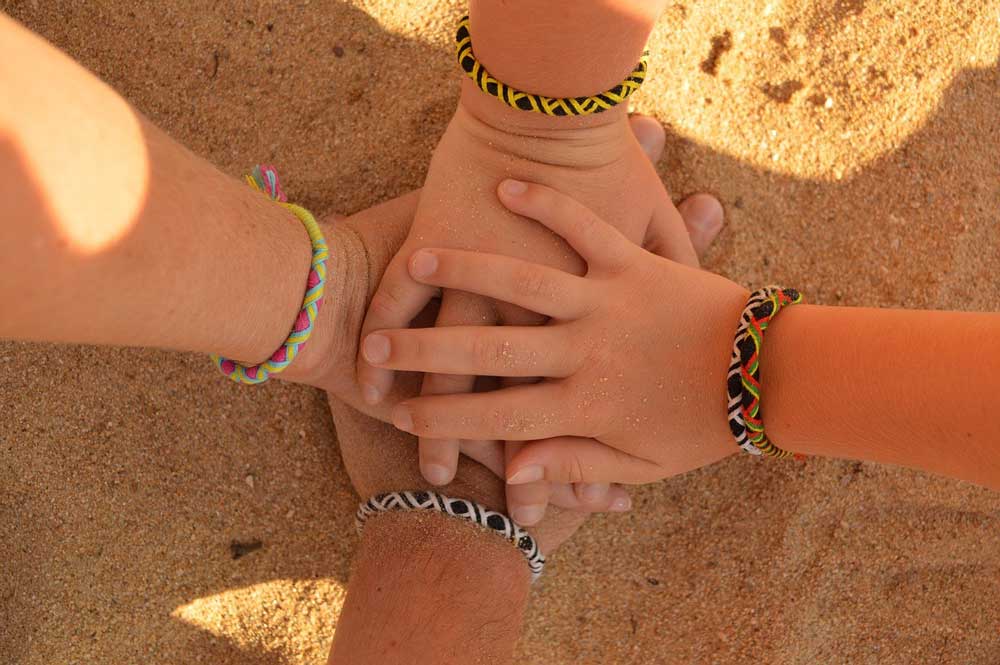
Ready to build a giant sandcastle? Want to take a ride down the boardwalk on one of those four-wheel multi-person bikes? How about a game of beach volleyball? When you hit the surf with your family, there are lots of ways to practice cooperation.
Cooperation, or shituf peulah in Hebrew (literally “program partner”), is one of those values that parents try to impart at a very early age, although it can take some time for the idea that two heads are better than one to sink in. Find ways to work together to prepare for your trip and ways to tie in group games and activities once you’re there.
Kindness To Animals

Seeing wildlife up close is one of the true joys of beachgoing. Children love to spot animals like seagulls, crabs, and starfish. The Jewish value of tza’ar ba’alei chayim refers to the ethical treatment of animals, and there are several ways to put this into action at the seaside.
Pick up trash, even if it’s not yours. This will help ensure that nothing endangers the lives of the local sea life. If you see an injured or stranded animal, don’t try to help it yourself. Instead, alert a lifeguard or other authority at the beach. Hot weather affects pets too, so if you’re bringing your dog to the beach, make sure to also bring an umbrella for shade and plenty of water.
Contentment

Part of what makes the beach such a popular vacation destination is that most of the fun is built in. Just watch kids digging holes in the sand for an hour, and you’ll understand.
The Jewish value of being happy with what you have (sameach bechelko) is easy to recognize when you can appreciate the natural beauty around you. Let your beach time be a time to rest, rejuvenate, and reflect on how wonderful it is just to spend time with your family.
Good Behavior

Do the phrases “inside voice” or “hands to yourself” sound familiar? The Jewish concept of derech eretz is about proper behavior and is a reminder that following the rules ensures everyone stays safe and has fun.
While public beaches generally have written rules they expect visitors to follow, the beach is also a great place to model simple courtesy and respect. Be aware of those around you so you don’t interfere with anyone else’s enjoyment; share beach toys with other families; and establish some family rules for the beach so that each family member knows what’s expected of them.
Tzedakah
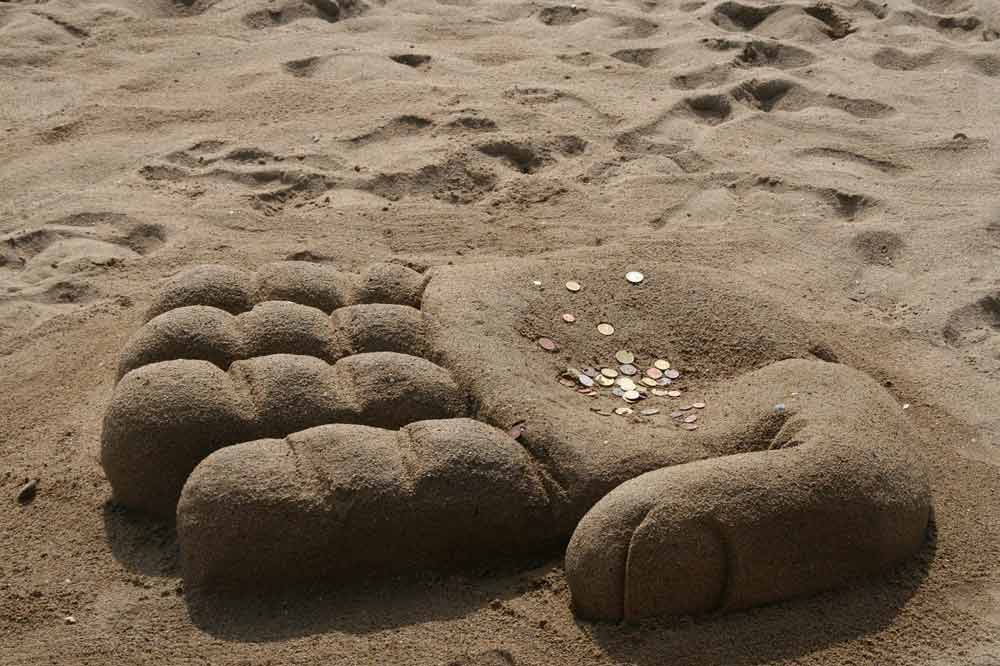
The Jewish value of “righteousness” or “justice” is often shorthand for charity, and even at the beach, there are plenty of charitable ways to give back.
Some beaches may have local supporter organizations that fund beach cleanups and other programs. You could also donate to your favorite conservation nonprofit that supports or rehabilitates wildlife. And while it’s not necessarily a donation, simply supporting the local economy of the beach town is also a helpful way to ensure your family and others can keep coming back year after year.
How are you planning to share values at the beach? Share your ideas on Facebook or Instagram with #pjlibrary.
May 29, 2019